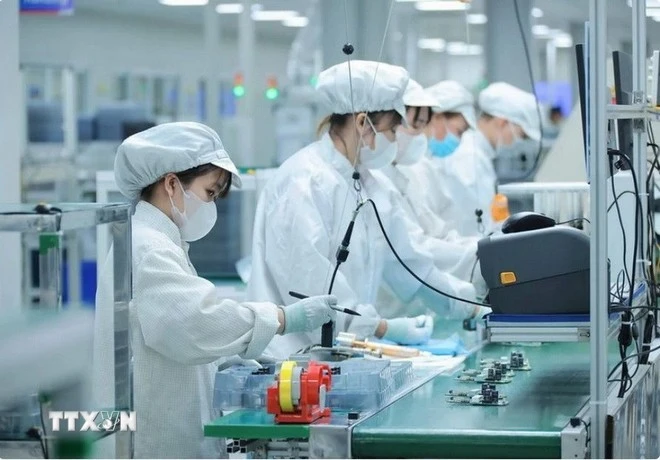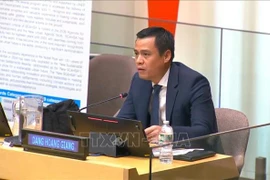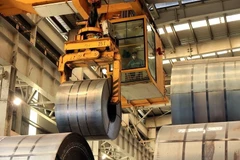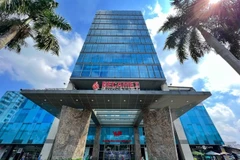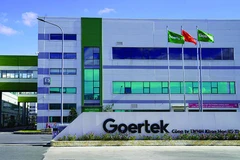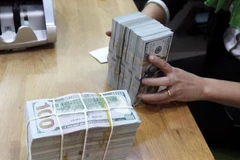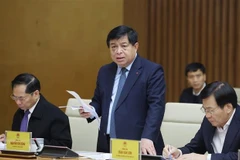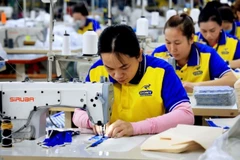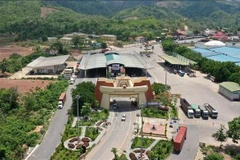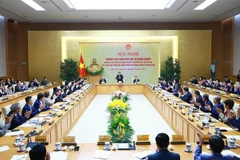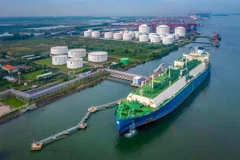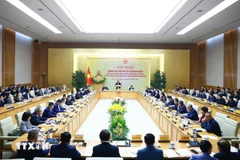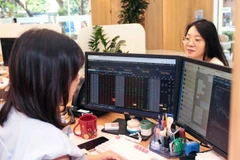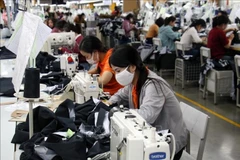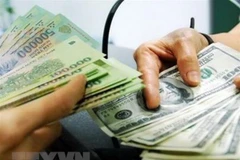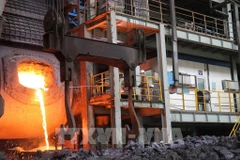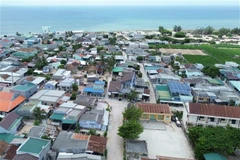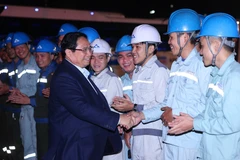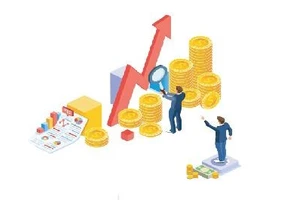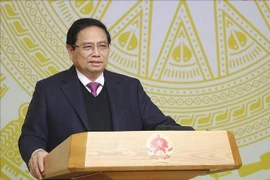Hanoi (VNA) – A workshop on promoting the semiconductor industry and energy resources in Vietnam’s economic reform and opening-up was held in Hanoi on February 11, aiming to assess potential and challenges while proposing development measures in the context of global integration.
The workshop was jointly organised by the Institute of Sustainable Regional Development under the Vietnam Academy of Social Sciences (VASS), the Korea Institute for International Economic Policy, and Korea University. It also served as a platform to connect scientists, businesses, and policymakers, helping to shape policies, attract investment, and promote sustainable growth.
Speaking at the event, VASS Vice President Dang Xuan Thanh underlined that the Vietnamese Government has identified the semiconductor industry as a key breakthrough sector, capable of driving the country into a new phase of development. He pointed out the successful models of such countries as the Republic of Korea (RoK) and Japan, which Vietnam can learn from to enhance its competitiveness and integration into global supply chains.
Thanh also underscored the importance of rare earth extraction, exploration, and processing. He stressed that while utilising rare earth resources can contribute to economic growth, it must be closely connected with environmental protection and energy security, both of which are critical priorities for any nation.
Regarding the energy sector, he highlighted that Vietnam has introduced several key policies under the Prime Minister’s direction to support sustainable energy development, environmental sustainability, and national energy security. However, with ambitious goals ahead, Vietnam must learn from international experiences to make significant progress in the field.
He noted that this workshop represented an important step in knowledge exchange, cooperation, and advancement of a comprehensive development strategy between Vietnam and the RoK.
Sung Jin Kang, Director of the Institute for Economic Research at Korea University, said the Sustainable Development Index is closely linked to GDP per capita. He emphasised that economic reform and opening-up policies have played a crucial role in driving sustainable development. This highlights the need for stronger policies supporting businesses, investment in technology, and international cooperation to improve competitiveness and long-term sustainability.
Associate Professor Dr. Bui Quang Tuan from the Vietnam Institute of Economics analysed the role of state-owned enterprises (SOEs) in Vietnam’s economy and the challenges they face. While SOEs continue to play a dominant role in key sectors, Vietnam is actively working to restructure and enhance their efficiency.
However, Tuan noted that SOEs still face significant limitations, especially amid international economic integration, digital transformation, and growing competitive pressure. He emphasised that continuous reform and deeper global integration are critical for Vietnam to transition toward sustainable development and strengthen SOEs' competitiveness in the market economy.
Participants at the workshop discussed sustainable development experiences in countries that have undergone economic reform and opening-up while proposing measures to promote sustainable growth in Vietnam’s evolving economic landscape.
They stressed the importance of economic restructuring, improving investment efficiency, and enhancing competitiveness. To achieve its goal of becoming a high-income nation by 2045, Vietnam must maintain strong economic growth over the long term, they added./.
